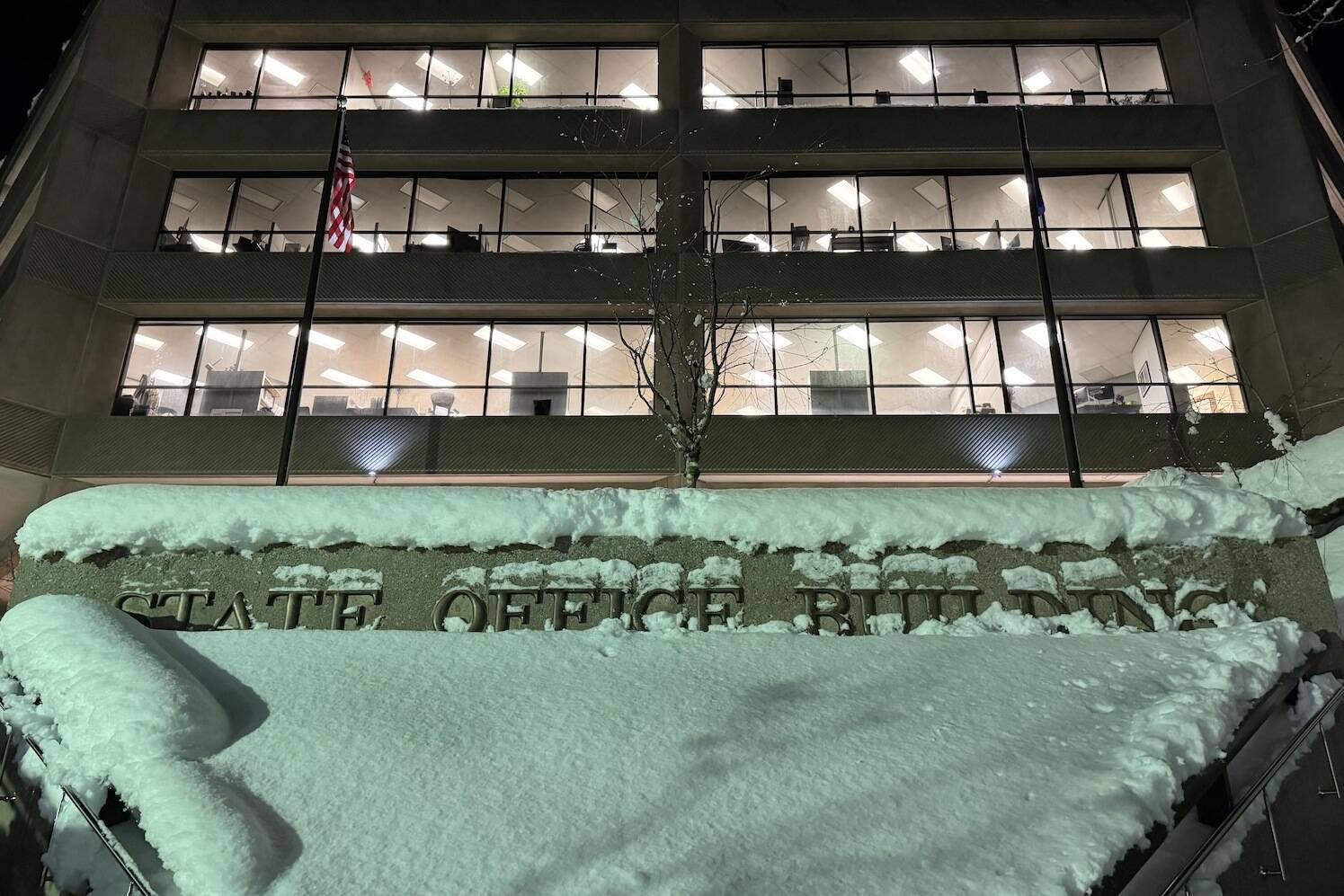A state commission is recommending automatic inflation-driven raises and salary cuts for Alaska’s governor, lieutenant governor, members of the state Legislature and top officials at state agencies.
The recommendation, approved by the three members of the State Officers Compensation Commission on Wednesday, will become effective after the 2026 state election unless the Alaska Legislature and Gov. Mike Dunleavy enact a law disapproving the decision.
“If we’re really going to have a system where anybody can run (for office) and be able financially to do it, we have to have salaries that are commensurate to that need,” said Larry LeDoux, a member of the commission.
Alaska’s governor currently is paid approximately $176,000 per year in salary. The lieutenant governor’s salary is approximately $140,000, and the salaries of state commissioners — in charge of agencies — are approximately $168,000 per year. State legislators receive $84,000 per year in salary.
Under Wednesday’s vote, each of those figures will be regularly adjusted according to the Anchorage Consumer Price Index, a measure of inflation.
The salary commission is required by law to meet regularly, but before 2022, it had been over a decade since the last salary adjustment.
As a result, the commission recommended significant raises for top state officials to make up for inflation in the intervening years. In addition, it recommended increases for legislators that were substantially higher than inflation. The state Legislature failed to block the recommended raises.
Speaking Wednesday, LeDoux said he believes there is significant political pressure to keep salaries low, “so the system hasn’t worked well in the past.”
Inflation adjustments will allow gradual, small raises instead of the large bump that occurred two years ago.
Lynn Gattis, a former state legislator and member of the commission, noted during Wednesday’s meeting that the CPI may change downward as well as upward, meaning that the commission’s proposed adjustment could result in salary cuts as well as increases.
Since 1960, according to the U.S. Bureau of Labor Statistics, the Anchorage CPI has posted a year-over-year decline only once, during the COVID-19 pandemic.
“I struggle with automatic increases,” Gattis said after the vote, but explained that if the state wants to attract quality commissioners, she believes that it needs to pay more.
“We’re talking about looking for quality people that will take a leave of absence from their jobs for a couple years. And nobody’s doing that for an amount of money that keeps them from feeding their kids and paying their mortgages,” she said.
In the Alaska Capitol, legislators are considering whether the wages of regular state employees should be raised to fill a significant number of vacant positions. A review of state salaries, ordered by the Alaska Legislature in 2023, is overdue from Gov. Dunleavy’s office.
Gattis deferred comment on the broader salary issue.
“We stayed inside our box and did what we were supposed to do,” she said.
The commission doesn’t have control of ordinary workers’ salaries, LeDoux said.
“It’s not an issue that I have control of — the governor and Department of Administration and their employee groups. That’s far out of our bailiwick. We’re just trying to do what we believe is right with the charge that we’ve been given as commissioners on the salary commission,” he said.
• James Brooks is a longtime Alaska reporter, having previously worked at the Anchorage Daily News, Juneau Empire, Kodiak Mirror and Fairbanks Daily News-Miner. This article originally appeared online at alaskabeacon.com. Alaska Beacon, an affiliate of States Newsroom, is an independent, nonpartisan news organization focused on connecting Alaskans to their state government.

